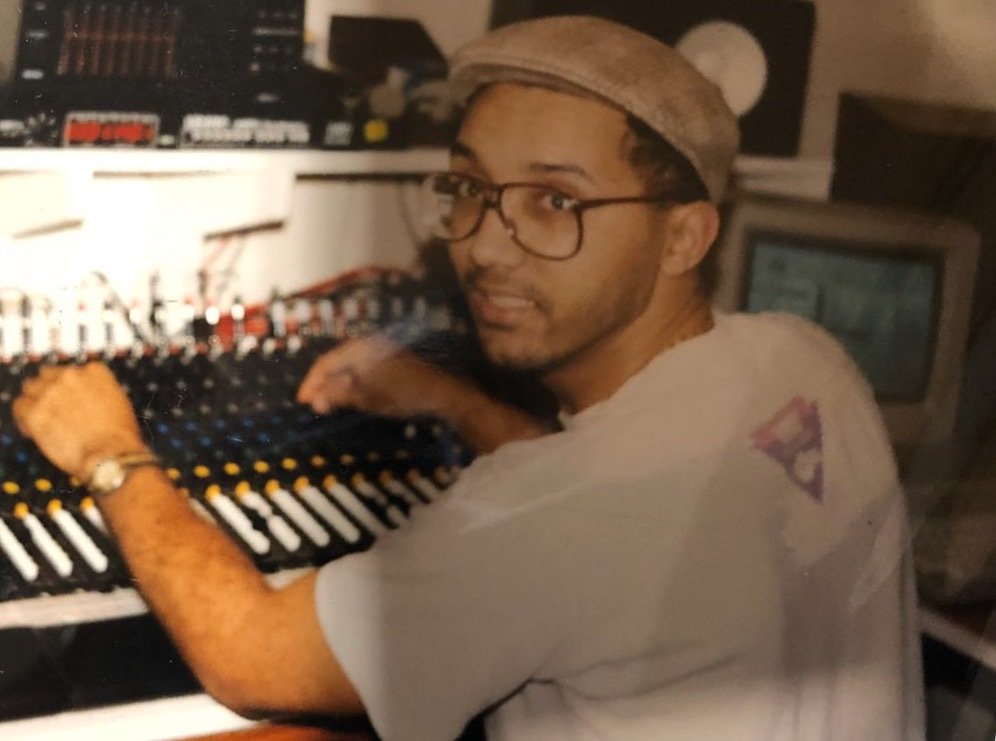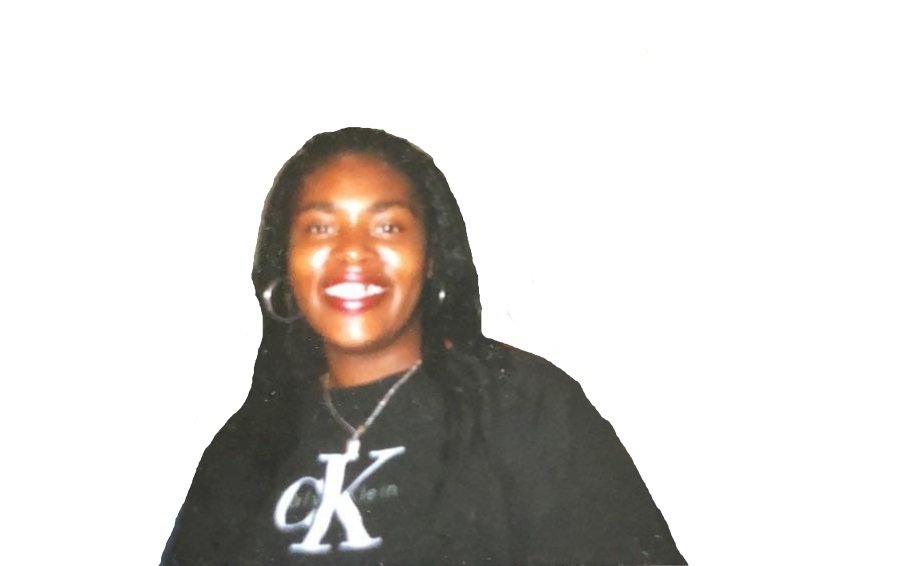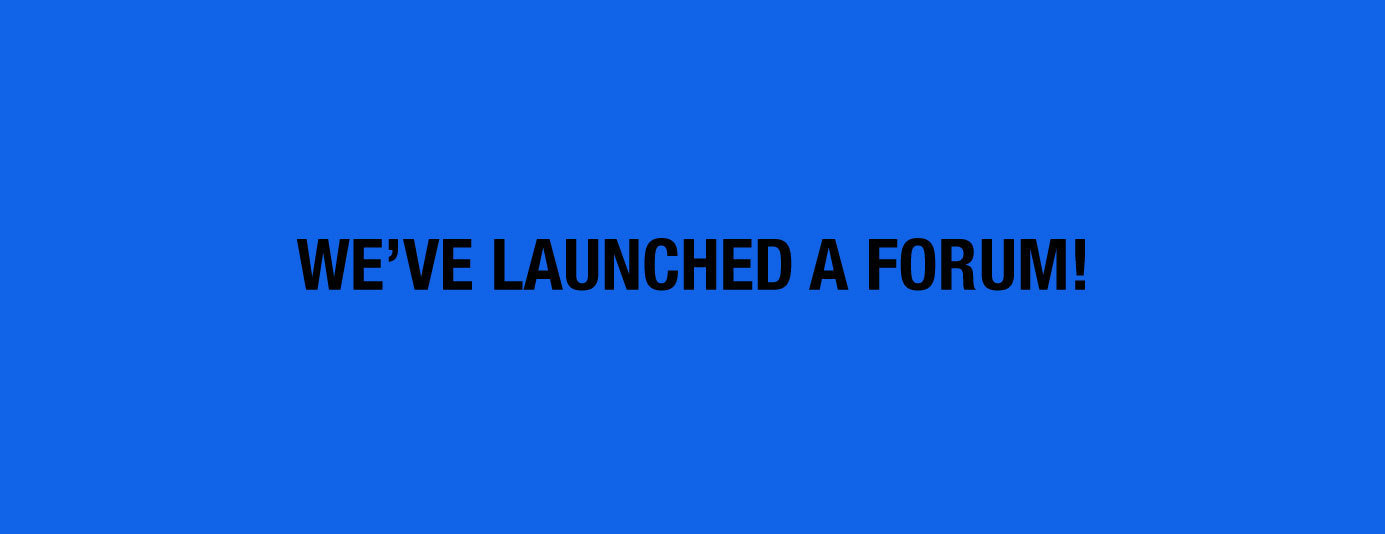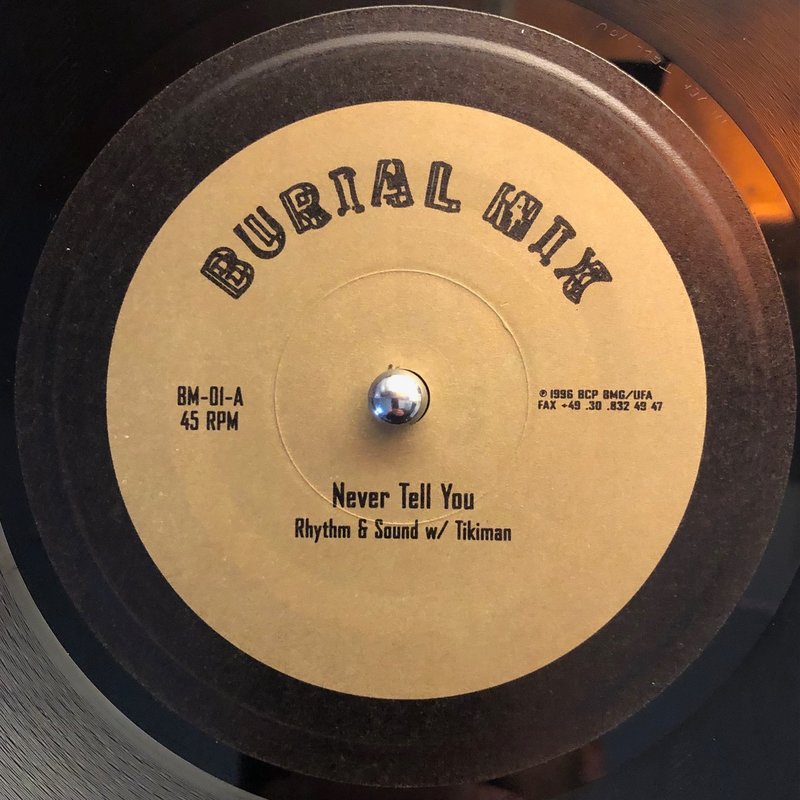
In 1989, Bassline, the studio project of South east London-raised musician Tony Henry, not to be confused with Tony Henry from Manchester jazz-funk/R&B band 52nd Street, released a single 12” titled “You’ve Gone” featuring Lorraine Chambers. In the decades since “You’ve Gone” has earned its place in the canon as a crucial slice of UK street soul. As Lorraine’s heartsick vocal levitates over sunrise synths, dusty drums loops, elegant electric piano and a reggae bassline, “You’ve Gone” captures the optimism and strength of the late 80s with perfect poise.
On the 5th of March 2021, Adelaide’s Isle of Jura record label is reissuing the “You’ve Gone” 12” in physical and digital formats. Earlier in the year, I got on Zoom to chat with Tony about his background before “You’ve Gone” and what happened afterwards. He spun me a spectacular yarn that started with listening to British pop in the seventies, before diving into sound system culture, forming a reggae band, and learning the ropes of home studio production - while holding down a day job in banking and raising a family. Check it out below.
At the concert, I did this thing that I still do to this day. I saw what he was doing and thought, I can do that. The next day, I went out, bought myself a bass guitar, and taught myself how to play it.
Test Pressing: What’s your ground zero with music?
Tony Henry: Growing up in the U.K. with sound systems, but before sounds became popular, all that we were fed, certainly on the T.V. was a diet of pop music. All that sort of stuff like David Bowie and Elton John, which I love to this day. I was just a kid who liked music. I went to this reggae concert, and one of the opening groups was this lovers rock band called One Blood. A good friend of mine, who I’d lost contact with, was playing bass for them. At the concert, I did this thing that I still do to this day. I saw what he was doing and thought, I can do that. The next day, I went out, bought myself a bass guitar, and taught myself how to play it. I’d learned recorder at school, so, to a degree, I could kind of read music. I’m not going to pretend I’m some sort of technical whizz on the bass because I’m not. But in terms of reggae and dance, where you’re on the beat and hold that rhythm right, I can do that. So that is where ground zero was for me with learning the trade.
Test Pressing: What came next?
Tony Henry: One day, I saw my brother tinkering with a keyboard, playing chords and that. I said to him, how do you do that? Show me how to do it. So I did that typical thing again, went out and bought a keyboard. Things sort of evolved from there. It seemed to me that the journey was every time I saw somebody do something I thought I might be able to do, I’d have a go at it. The only thing I can’t really do is sing, but even then I could sing enough to get my ideas across to people.
Test Pressing: That lovers rock group you mentioned before, One Blood, was that Barry Boom’s 80s band?
Tony Henry: Yes, Ewan, the bass player from One Blood, that’s Barry Boom’s older brother. Barry was the youngest of the brothers. I worked with him. We started working together in a bank. By knowing him, I got introduced to the rest of the brothers. Years later, I worked on music with those guys. Unfortunately, in recent years, three of those brothers have passed away.
Test Pressing: So from quite early on, you were close to people who were doing big things in the U.K. reggae scene. That must have been pretty inspiring?
Tony Henry: It’s funny. I’m a little bit greyer in the whiskers now, but when I look back on my life, the only thing that really stopped me from hitting those heights of musical success was this, I worked in banking, and I became reasonably successful in banking. Let's not beat around the bush, the environments that I grew up in, were very bigoted; they were racist. They were sexist and misogynistic. They were the whole nine yards.
I've worked hard for everything I've ever wanted to do in my life, right. And I became very successful in the banks, but that’s another story. As a consequence, although it's my first love, music couldn't have afforded me the sort of level of - let's just be blunt and pragmatic about it - financial success that would have allowed me to support my family. That’s where my path took a slight diversion.
Test Pressing: What did the sound system side of things mean to you?
Tony Henry: I'm sure you've heard of Saxon sound? We grew up with Saxon sound. So all those guys Phillip Levi, Musclehead and all those guys from Saxon sound. They're friends of mine, people I know. And my cousin was also in a sound, another sound, like a rival sound. So I grew up with it, much like I grew up with great music.
The first record I ever bought, as a kid, was 'The Jean Genie' by David Bowie, right. Brilliant track. The second one I bought was "Move On Up", the Curtis Mayfield album. The third one I bought was "Natty Dread", Bob Marley and The Wailers, right. So you could see my musical influence started to go towards the music that my father played in the house because we grew up with reggae and ska in the house as well. So, we were a generation where this meant a lot to us, the sound system, getting out there and hearing this kind of music. We formed a reggae band, and we called it Chakwanza, which in Swahili means the first, alright. Our influences back then were Aswad and Steel Pulse, right.
Test Pressing: What period was this, the early eighties?
Tony Henry: Yeah. It was a crazy time. My drummer, who was my best friend, and is still my best friend to this day. He went to the same school as Drummie Zeb from Aswad. Aswad’s road manager was our manager, so we were always inextricably linked with these guys wherever we seemed to go and play. At that time, it was like a village. Everybody knew everybody. We’d rehearse in a place called Brent Black Music Co-Op, BBMC, and the cream of reggae was there. Dennis Brown would turn up there, and he was one of the funniest guys I ever met in my life. That was where my influence and grounding was. We wanted to do reggae with a difference like Aswad and Steel Pulse. The thing is, it’s hard to make it as a band, and back then, it was really tough.
But if I’m honest with you, it was a brilliant time. I guess we were pioneers to a degree. We were the first kids who had sound systems. Even I had a sound, but it was pretty crap looking back on it. But you know, me and a couple of mates had a sound when we were sixteen years old! It was good times, but the band thing just got harder and harder. I was living in South London, and the rest of the band was in West London, so I was doing the most travelling, and I got a bit tired.
Test Pressing: Let me guess what happened next, you gave up the band?
Tony Henry: Yes, if I’m being honest with you, I got tired of the band. I bought a TASCAM Portastudio, a little four-track thing, and I started writing songs and recording demos on it. I’d written this song, and one of my friends mentioned his uncle had a studio. Back then, studios were things you saw on T.V. So, I rocked up to this guy’s house. He’d converted a room into a studio with a drum kit and everything. And I did that thing again, as I said to you earlier on in this call, I saw his studio and thought, I could do that. I literally went out and bought an eight-track tape machine, a mixing desk, and I just went for it. I set up a home studio and started learning how to use modules, samplers, and things like that, and I got pretty okay at it.
Here’s the interesting thing, I was still working for the banks at the time. There was a girl in the office I got friendly with, Barbara Chambers. We were having a conversation one day, and someone had mentioned her sister to me, Lorraine Chambers. So I said to her, I've heard about your sister. I've heard she can sing. Tell you what, can you tell her to contact me and see if she wants to do some work? Lorraine came down to my house. I had this room I’d converted into a studio with a vocal booth. I played her a track and straight away, she said, I think I’ve got something that would fit with that. Honestly, it really did work like that.

Test Pressing: What happened next?
Tony Henry: We released the track. It immediately got picked up by what was Choice FM back then, Capital Xtra. Kiss FM was absolutely killing it as well. Trevor Nelson had it on his show and all these guys. Suddenly, the main interest seemed to come from the north, Manchester, Birmingham. It was just this thing. It just grew legs and just went.
Me and Lorraine were doing live P.A.s all over the place. One of the best ones we did, I’ve got to say, was one of the first ones. Rampage, who are a U.K. soul sound system, were huge back in the day. They had a gig at the Hippodrome in London, and they pulled a crowd that filled it. It was absolutely mobbed in there. Lorraine did her first P.A. in there.
We gave them a C90 cassette tape to play through the system. True story, when I heard it over that system, I nearly wept. It was fantastic hearing it at that kind of volume. I'm no engineering great, but to see that it could be boosted to that level, and not distort or sound bad or whatever, was truly something. I remember another time when Lorraine did a P.A. up north; she went out there like she was Beyoncé. They were so into the song. It was a crazy time.
Test Pressing: Why didn’t you follow ‘You’ve Gone’ up with another record?
Tony Henry: We were supposed to be doing a follow-up track, but suddenly out of the blue, Lorraine got management. Before then, it had always been just about the music. But you know, three’s a crowd. Her manager started trying to direct what we did with the music, I didn’t agree, and we ended up parting ways. Me and Lorraine are still friends to this day, but that kind of threw petrol on the fire, and that was that. Funnily enough, we’ve been talking about making some music again recently. I still write, she still writes. In the 90s, I did some reggae and soul session work, but when my younger kids came along, I had to take a bit of a hiatus from it.
Test Pressing: This period that we think about when we talk about Street Soul, which I guess is 1987 to 1994, the music is so optimistic. In retrospect, what do you think that was about?.
Tony Henry: As I said to you earlier, we faced a lot of bigotry. It was not a good time. The way the T.V. was, the media was, the way the police treated us. I got pulled over by the police every week for three months while driving to band practice. This happened to me everywhere in London. It was upsetting, but I was never going to show them that they’d upset me.
This was my thinking: I'm not going to let you see me react to this, because I'm better than that. I think what we always thought is, it's got to get better than this. It's got to get to a stage where it's better than this. Have we got somewhere? Yeah, we've gone quite a long way since those days, but not far enough, as you can see by the crap that's happening in The States, and how we all have been treated like idiots, basically, by the heads of state that sort of run us.
Test Pressing: In a sense, optimism was the only way to move forward?
Tony Henry: Yeah. Also, we were still learning. We were learning about music, and we were learning about life. When we were going to a party, we’d go to the barbershop, buy new clothes. We had this zest for life. We were optimistic, and we had great music that made us want to hug our partners or girlfriends. We had lovers rock, street soul, really nice R&B. It’s interesting, I haven’t thought about it before, but that gap of time you mentioned before was absolutely as short as that. Jungle came along, U.K. garage came along, the world changed. For me personally, it changed as well. My younger kids came along, I started becoming more successful in banking, and I ended up living and working in New York and Chicago for a period of time.
Interestingly though, during lockdown, I started making music again. I bought Cubase, installed it on my P.C., and I’ve linked up with my old muckers, the guys I used to do session and production work with after Lorraine. We’ve been building up a studio and a little production thing with some U.K. reggae artists. I’ve also created a label of my own, Mad Clown productions, and we’re planning to release some tracks. I’ve never lost my love of music, but sometimes life gets in the way, and you have to take a break.
"You've Gone" is due for reissue in 12" and digital formats through Isle of Jura on the 5th of March 2021 (pre-order here)


